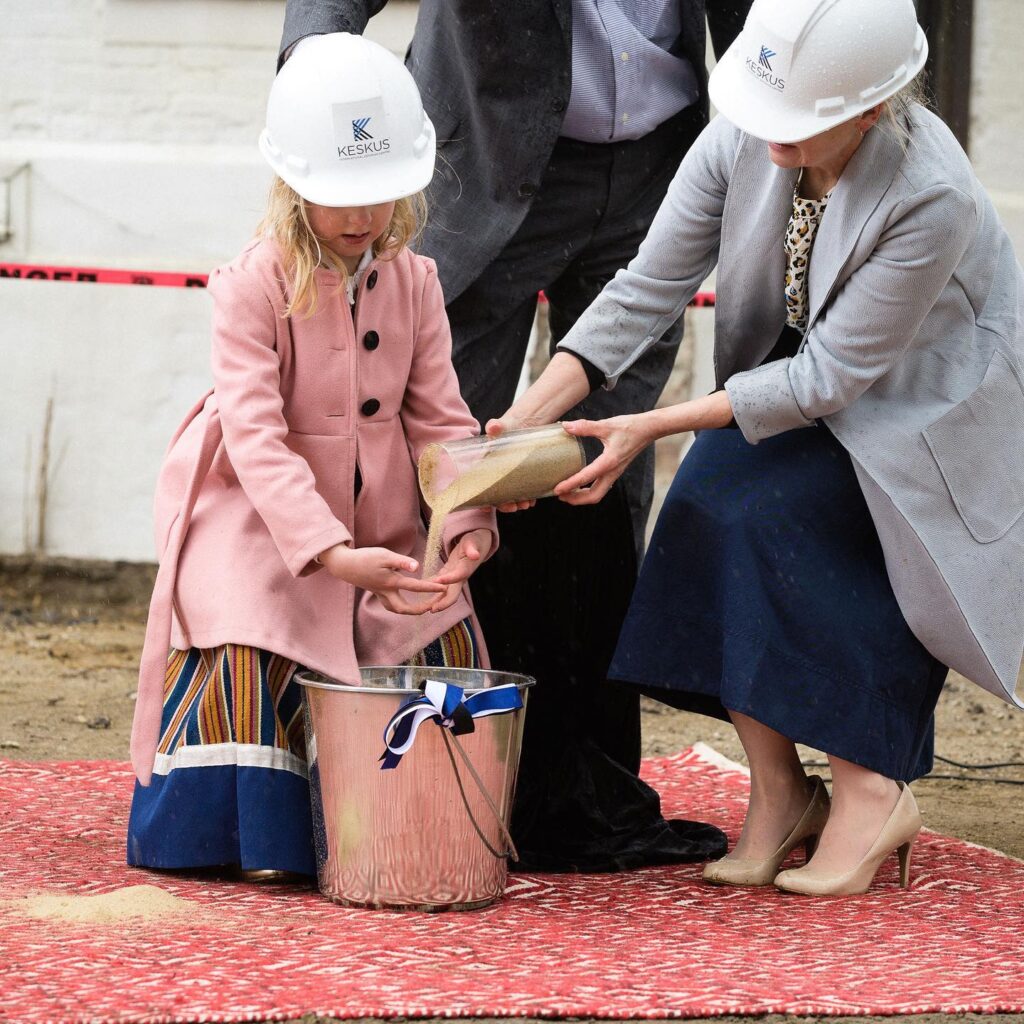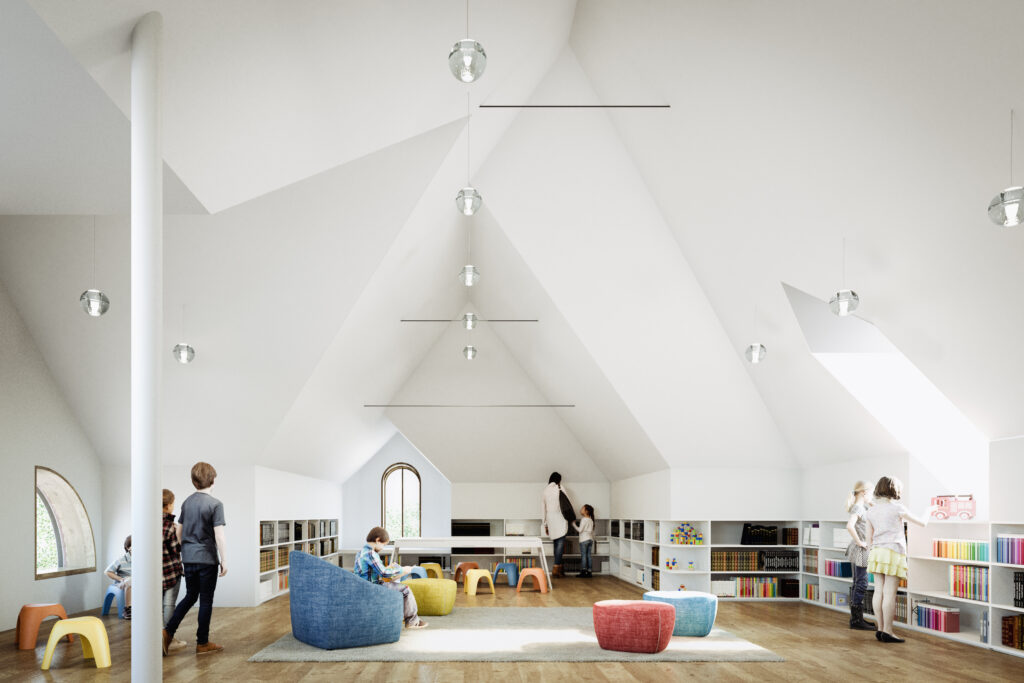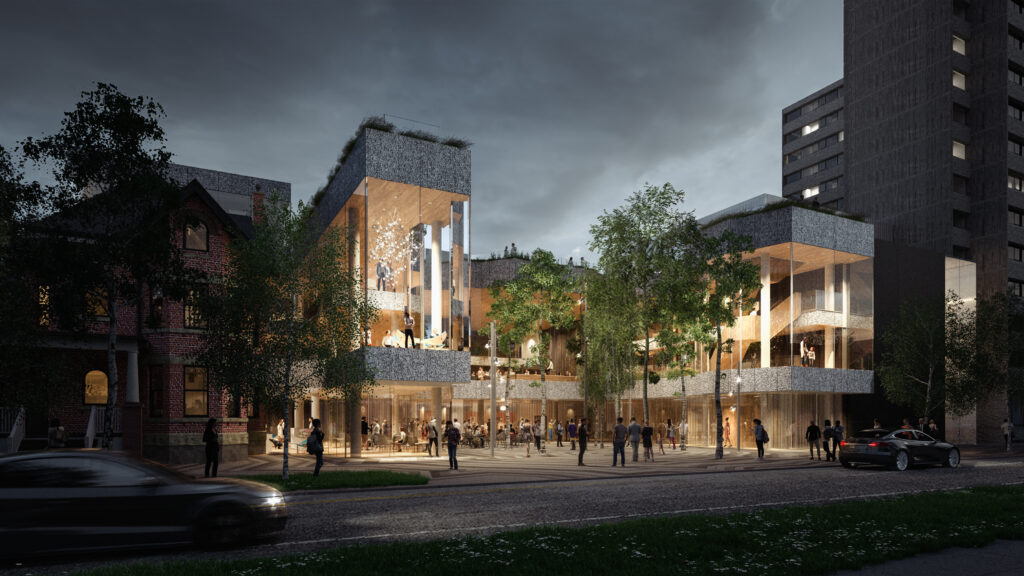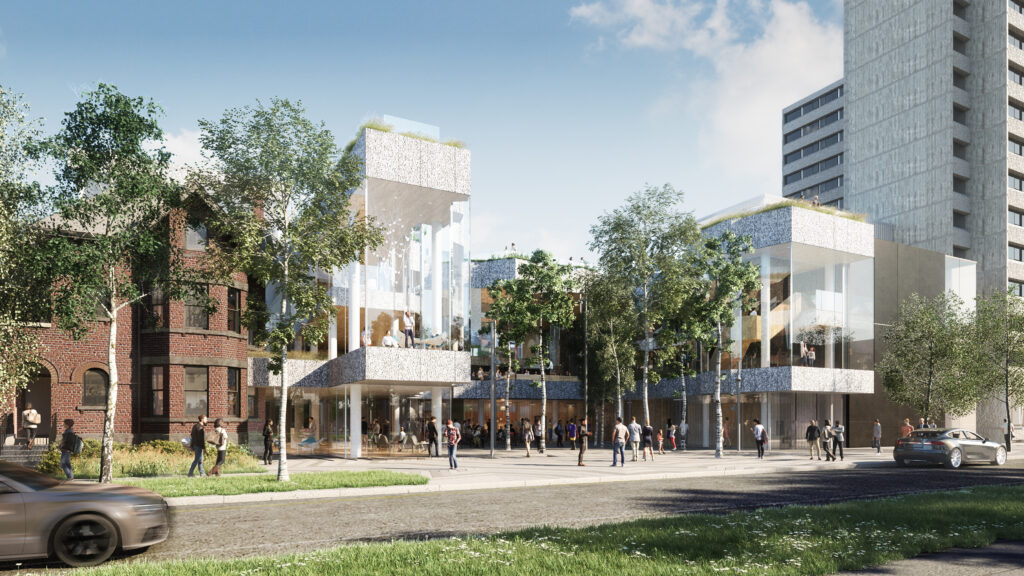The ceremonial groundbreaking for an international Estonian centre called the Keskus was recently celebrated in Toronto, Canada, marking the first time in over half a century that a new Estonian community hub is being built abroad.
A large audience of Estonian descendants as well as Canadian dignitaries attended the ceremonial groundbreaking for the Keskus centre on 8 April in Toronto, the largest city in Canada. The name comes from the Estonian word “keskus” – a compound word that consists of “kes” meaning “who” and “kus” meaning “where” – that stands for a “centre” or a “hub”.
Attracting the global Estonian diaspora
To demonstrate the strength of ties between Estonia and the new community hub, a bit of sand was even brought over from Estonia’s shores and poured into the building’s foundation through the fingers of the outstretched hands of a six-year-old Estonian-Canadian named Berkeley.

The Keskus International Estonian Centre will be the cornerstone of Estonian culture, business and community relations in Toronto and is also aimed at attracting the global Estonian diaspora. The centre – the first of its kind in more than half a century – is being built by the Estonian community in Canada and is supported by donations from around the world.
“For Keskus, this landmark international centre, to go from dream to reality is a great source of pride for Estonia and for Estonians everywhere,” Toomas Lukk, the Estonian ambassador in Canada, said in a statement. “With the centre’s courtyard shaped like the borders of Estonia itself, we’re now one step closer to seeing the very map of Estonia fixed into the heart of North America’s fourth largest city.”
Multifunctional space
Ellen Valter, who leads the Keskus project, said the new hub carried forward work that was started by Estonian Canadians generations ago.
“When Estonians first arrived in Canada, they put in place the infrastructure that would keep their country’s heritage and culture alive for generations to come,” Valter noted. “Keskus leverages that investment, parlaying it into a modern building that will keep this heritage evolving for yet further generations. All of this is being done thanks to the support of the diaspora community. This is our new home and global flagship, one in which we can share what it means to be Estonian, with each other and the world.”

Valter emphasised that the new event and performance space was not just for the Estonian community. “Keskus will welcome everyone, tell the Estonian story and be a multifunctional space where all can feel at home,” she said. It is hoped the centre will bring prominence to Estonia and its culture and help launch business opportunities between Estonia and North America.
The current Toronto Estonian House traces its history back to the Second World War, when Estonians were fleeing their homeland and found a safe haven in Canada. As the old centre could no longer operate sustainably, a redevelopment of the existing site was first envisioned.
However, when it became evident that such a project was not possible, four Canadian-Estonian organisations came together, bolstered by a global fundraising campaign and honorary chaired by the former Estonian president, Toomas Hendrik Ilves, to build a new centre, so far raising CAD 17 million.

The state-of-the-art Keskus building is designed by Estonian-Canadian architect Alar Kongats and is expected to be completed by 2023.
Estonian community in Canada has flourished
Toronto and the southern Ontario area are home to a significant number of Estonians. The 2006 census estimated there were 23,930 people of Estonian origin in Canada.
Between 1900 and 1944, it’s estimated that fewer than 3,000 Estonians immigrated to Canada. However, in 1944, approximately 72,000 Estonians escaped the Soviet occupation of Estonia by fleeing to Sweden, of whom nearly 14,000 immigrated to Canada between 1946 and 1955.
According to the Canadian Encyclopedia, “Canadians of Estonian origin are among the ethnic groups with the highest average educational levels and incomes. Estonians have contributed particularly to the development of amateur sports and, particularly in Toronto and Vancouver, to architecture and the construction industry.”

Valter noted that Toronto continues to see not only a vibrant concentration of Estonians from the first wave of post-war immigrants but also those who have found their way to the country more recently. “We have flourished, succeeded and advanced Canada’s successes in every walk of life,” she stated.

